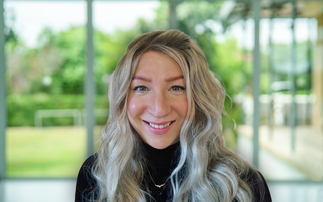
As the Great Wealth Transfer gathers pace, Women in Financial Advice Awards 2025 headline sponsor LV= hosted a webinar on women, wealth and what comes next. Here LV= shares insight from the event...
We're in the middle of one of the biggest shifts in wealth ownership in history, with women predicted to inherit 60% of wealth by the end of 2025 (1).
In a recent webinar hosted by LV=, Dr Eliza Filby, historian of generations, and Vanessa Barnes, financial planner and co-founder of the Women's Wealth Alliance, shared thought-provoking insights about the so-called great gender wealth transfer, a transition already reshaping the financial landscape.
The changing story of women and money
It was not until 1973 that women were officially allowed onto the London Stock Exchange, and not until the 1980s that many could take out a mortgage independently. Against that backdrop, today's Baby Boomer women are the first generation to inherit and control significant levels of wealth in their own right. They are benefiting from property sales, pension freedoms and inheritances at a scale unseen in previous generations.
But Dr Eliza Filby's message was that this is not just a boomer story. Every generation of women carries a different financial narrative. Boomers had the traditional "three-stage life" of education, work and retirement. Generation X were the first to outnumber men at university and the first to own property in their own names before marriage, but they are also the "squeezed generation", supporting children into their 30s while funding care for ageing parents.
Millennials, now entering their 40s, are in the pinch years of childcare and mortgages, often delaying pension saving and relying on future inheritance. And Gen Z are redefining wealth altogether, embracing side-hustles, micro-investing and financial education from YouTube and TikTok, while distrusting traditional sources of advice.
Across these generations, Dr Eliza Filby pointed out a common thread: women want empowerment, not exclusion. Too often, they approach advisers with a fear of being judged or sold to. They seek clarity, education, and above all, trust. Advice that feels personalised, whether that's explaining tax thresholds, guiding through inheritance, or helping them navigate volatile markets, can transform distrust into lasting confidence.
The risk of doing nothing
Vanessa Barnes expanded the implications for advisers. Her starting point was simple: look at your client book. How much wealth sits with clients aged 62 and over? Now imagine two-thirds of it walking out of the door. That's the risk if firms fail to adapt, because 70% of widows change adviser after bereavement (2).
Vanessa Barnes challenged the assumption that female clients simply prefer female advisers. The evidence doesn't support that. What women want is a competent adviser who understands their needs and priorities. Those needs are not identical to men's. Women are more likely to emphasise long-term security, to weigh non-financial priorities (such as family support, care and lifestyle sustainability) alongside financial returns, and to want risk framed in terms of longevity and health rather than just performance charts.
She gave a stark example of this disconnect: one widow switched advisers not because of poor service or results, but because in 15 years she felt her adviser had "never once looked her straight in the eye." Vanessa Barnes went on to explain that research backs this up. A study found that 25% of widows reported they did not even know where their late husband's money was held. And one third of women who inherit wealth have had no prior conversations about it. These gaps create not only distress, but a direct threat to client retention (3).
Vanessa's recommendations were practical:
- Ensure both partners, and sometimes adult children, are present for reviews
- Create a bereavement onboarding process that recognises emotional as well as financial needs
- Provide simple checklists and educational resources
- And make your firm's diversity visible, because women want to know you will understand their perspective.
She also flagged growing areas of vulnerability such as romance scams, where FCA data suggests hundreds of millions are lost by women each year, much of it unreported due to shame. Advisers who can proactively raise these issues and signpost support add significant value well beyond investments.
Bridging emotion and markets
What both speakers made clear is that the industry cannot afford to ignore this shift. With 60% of UK wealth expected to be in female hands by the end of 2025 (2), it demands a rethink of how we engage, educate and design solutions.
One area where advisers can make a tangible difference is in helping clients cope with the emotional rollercoaster of investing. From the thrill of rising markets to the panic of sudden falls, emotions drive behaviour, and behaviour drives outcomes. We saw this in 2020 when markets plunged at the onset of Covid-19. Thousands of retail investors rushed to cash out, and many missed the rally that followed.
For women who are newly responsible for wealth, whether through being widowed, divorce or inheritance, those emotions can be amplified. The fear of losses can overshadow the potential for growth, leading to decisions that damage long-term security.
How LV= Smoothed Managed Funds can help
This is where LV='s Smoothed Managed Funds can offer a practical solution. Designed to reduce the impact of short-term market volatility, the smoothing mechanism* helps clients stay invested with greater peace of mind, especially during periods of uncertainty.
Key benefits include:
- Unique smoothing mechanism reduces the impact of short-term market volatility.*
- Accessible across pensions, ISAs and investment bonds.
- Designed to keep clients invested with greater confidence.
- Eligible for our members benefits and the opportunity to earn a mutual bonus.** bonus for info
The opportunity ahead
The gender wealth transfer is not just a statistic, it is happening now, in adviser practices across the UK. Women are inheriting wealth, taking control of assets for the first time, and asking new questions of their advisers. Those who respond with empathy, education and tailored solutions will not only retain this wealth but also build relationships that extend across generations.
For insight and practical resources to improve your conversations with female investors, click here.
(1) Liverpool Victoria Friendly Society and Centre for Economics and Business Research, 2005, (2) 70% of widows leave their financial adviser within a year – here's why we need to do better - ifa, 2024.
*LV's smoothing process helps to reduce the impact of market volatility, but it won't prevent your investment from dropping in value. In periods of extreme market movement, if the daily fund price falls significantly relative to the smoothed price (for example, at or below 80%), smoothing may be suspended. We can also suspend smoothing at our discretion. During suspension, the fund is valued at the daily fund price until smoothing can be reintroduced.
**Clients must be invested for 12 months. Mutual bonuses are not guaranteed, see LVadviser.com/supporting-your-client/why-lv/ mutual-bonus for info.












